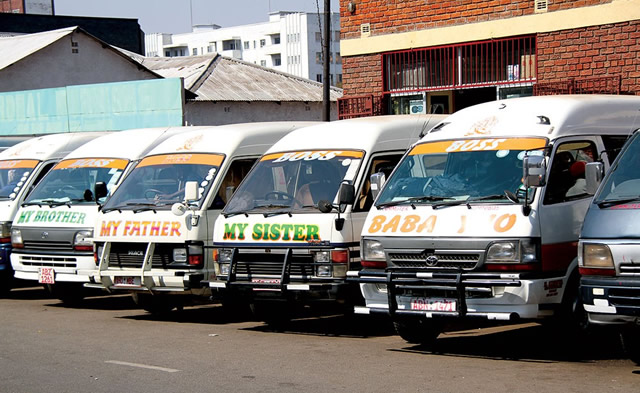By Pauline Hurungudo
Zimbabweans are facing more travelling chaos and heartache after both commuter omnibus and bus operators once again hiked their fares sharply, due to the country’s worsening fuel crisis.

This comes as most filling stations are increasingly charging petrol and diesel in United States dollars, in a desperate bid to raise hard cash for the importation of fuel.
At the same time, the fuel black market — which had become a thing of the past in the past decade — has bounced back with a vengeance, as desperate motorists and public transport operators turn to parallel traders for relief.
Speaking to the Daily News yesterday, the president of the Passengers Association of Zimbabwe (Paz), Tafadzwa Goliati, blamed the country’s biting fuel shortages for the new steep fares now being charged.
“It is true that … fares keep going up. For a trip to Kadoma, passengers are paying about $10 from the normal $5.
“Right now, from Mabvuku to town it’s $2,50 while Chitungwiza commuters are being charged up to $4 … prices are also going up abnormally during peak hours,” he said.
It also emerged that long distance buses plying the Harare-Bulawayo route were yesterday charging up to $60 for the trip, depending on the operator.
Greater Harare Association of Commuter Operators (Ghaco) representative, Ngoni Katsvairo, said there was now chaos in the transport sector due to the worsening fuel crisis.
“The situation is now uncontrollable because there is no clarity on … whether we are still using bond notes or not, because we are buying fuel in US dollars.
“We are also spending days in queues and to keep business afloat many people are buying fuel on the black market, which is costing more than $8 a litre.
“Some service stations are actually facilitating the black market sales,” Katsvairo told the Daily News.
Meanwhile, Confederation of Zimbabwe Retailers president, Denford Mutashu, has backed the calls for the government to allocate businesses and transporters special fuel supplies.
“There may be need for government to allocate service stations for public service vehicles and service delivery vehicles because employees are currently struggling to get transport to work, causing us to lose productive time,” Mutashu said.
Zimbabwe has been struggling to pay its foreign suppliers of fuel and other commodities due to its precarious financial position, which economists say has been worsened by corruption and mismanagement.
The country requires between 120 million and 140 million litres of fuel every month, with diesel making up the bulk of the fuel used by industry.
According to the government, Zimbabwe now requires on average US$100 million per month to cater for its fuel imports.
The country is currently in the throes of a mega economic crisis which has resulted in shortages of basic consumer goods and medicines.
Apart from experiencing these, President Emmerson Mnangagwa’s government is also battling to avoid strikes by civil servants who on Thursday rejected a 10 percent salary increase which they were offered.
On Wednesday, distressed companies also pleaded with authorities to allocate them special supplies of fuel to stop the country’s burning economy from imploding altogether.
On Thursday, companies also dropped a bombshell when they revealed that industry was left with an average of about 10 days’ worth of supplies of raw materials used in the manufacturing of key products. Daily News.






